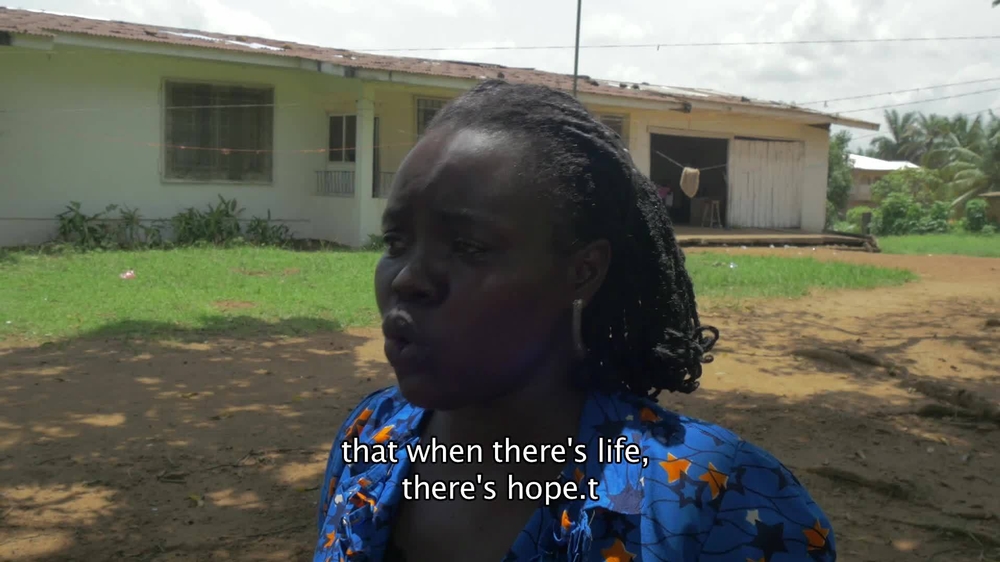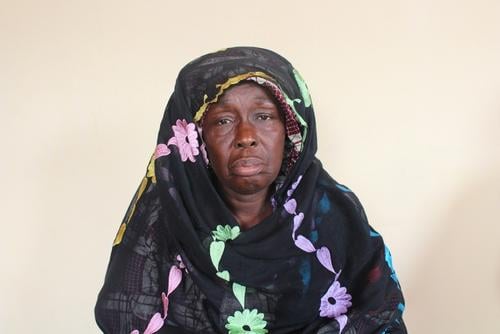As the World Health Organization declares Liberia Ebola-free on 9 May – having recorded no new cases of Ebola for 42 days – MSF takes a look at how Liberians are putting back together their fractured lives and shattered communities, nearly a year on from Liberia’s first recorded case of Ebola. Liberia has been hit the hardest by the Ebola outbreak, with 10,212 cases including 4,573 deaths. Mothers have lost children; children have lost parents; brothers and sisters have lost siblings. Communities have been decimated. But there are stories of survival and hope.
Siaffa Dolo, MSF front line worker, 29 years old
I worked for MSF in various capacities from August 2014 until April 2015. I worked as a driver on my initial assignment with the medical team and with the team recovering dead bodies a week later.
My primary responsibility was to convey dead bodies from the Ebola treatment centre to the crematorium. This was a huge task that I would not have opted to do under normal circumstances. But the country was in crisis and the participation of every citizen was needed.
I paid a high price for taking up a job that my family objected to. They were disappointed at my decision and told me to stay away until the crisis was over.
Every day was daunting. I cried at every loss of life. There was nothing more heart-wrenching to me than seeing babies, aged just two months old, having to be cremated.
I conveyed more than 700 bodies before I was reassigned just before Christmas to the newly inaugurated national cemetery as burial team supervisor.
I was re-assigned again to the ELWA3 Ebola Management Centre after almost two months as a hygienist and worked with the rapid response/outreach team until the end of my contract.
I’ve returned home to my family and they are happy to have me back. I now have a few more weeks resting before I can venture to a new job.
Watta Jabateh, survivor
I lost nine family members, including my daughter, but I survived.
Before Ebola visited my family, I was engaged in inter-state business. I travelled to neighbouring Guinea and Sierra Leone and bought clothes, bringing them back to Liberia for sale. I lost the business when I contracted Ebola.
I had 50,000 Liberian dollars (US$500) in savings in the house when I fell sick. An ambulance team visited my house that morning and transported me to the treatment centre.
I was admitted and received care and recovered from the virus. I returned home and realized that my money had been stolen. I don’t know who took it.
Some of my customers that I provided credit to before I fell sick have not come forward to pay me; I do not always remember who they are. Ebola has affected my ability to remember things. My grandchildren are out of school because I can’t afford to pay their fees.
My husband is disabled and looks up to me for everything. Right now, the family lives on handouts from extended family members, which is not sustainable. So I am looking for a way to earn some money to resume my business.
Beatrice Yardolo, survivor
My name is Beatrice Yardolo, I am 58, and I am proud to be Liberia’s last recovered Ebola patient.
I have been an English teacher for more than 15 years, mainly at elementary level. Married 32 years, I have six children and six grandchildren. I was born and raised in Loyee Town, Nimba County, about 375 km north of Monrovia. At first, I wanted to become a professional nurse but that dream was thwarted, due in part to the nearly two-decade-long civil war in Liberia that ended in 2003, and because of a lack of money.
When going to school was impossible because of war and poverty, and building a career for a sustainable livelihood became crucial, I saw the classroom as a suitable option and joined a Norwegian Refugee Council’s adult literacy training program in Tubmanburg, Bomi County, as a teacher. I taught in the school until the project ended in 2011 before moving back to Monrovia with my family.
I worked at a private church school in the St Paul Bridge Community, one of the communities most affected by Ebola in Liberia. I contracted the virus in February 2015 after losing three family members; two sons and a niece.
After two weeks in an Ebola Management Centre in Monrovia, I survived and was discharged to return home on 5 March to the cheers of Liberian government officials and aid workers. Liberia’s Ministry of Health acknowledged me as “the last Ebola survivor throughout the country", and I felt proud despite losing my sons and niece. I did not know I could make it.
It’s my hope that this deadly disease will finally leave my country. It has caused lots of problems for families. It’s easier to run away from guns in a war than from such an unseen enemy.
Today I do not want to return to the classroom. I am afraid that parents will complain about me teaching their children. Many parents wouldn’t like their children to attend the school. I have decided to avoid this embarrassment. Instead, I will look for money to engage in business.




